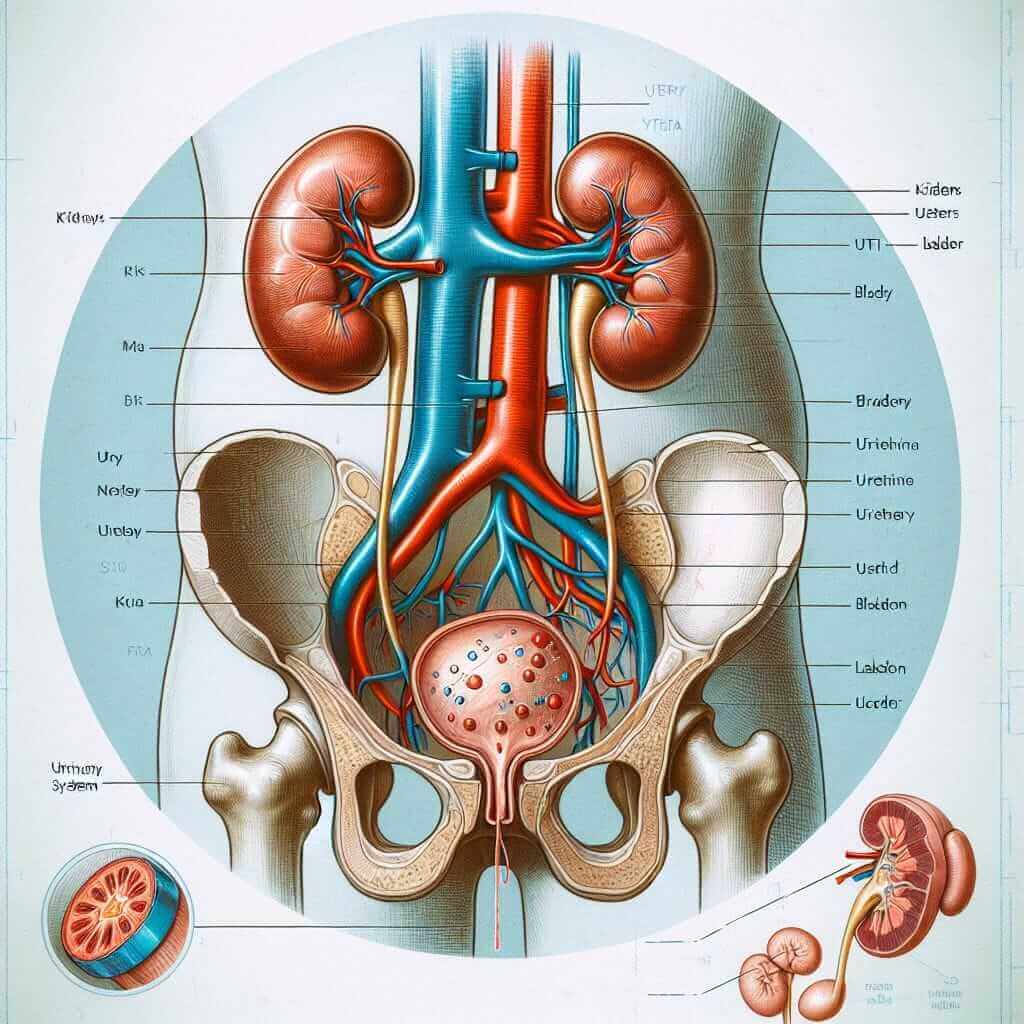When preparing for the IELTS exam, particularly the Listening and Reading sections, it’s crucial to familiarize yourself with vocabulary related to various topics, including health. One common health issue that might appear is “urinary tract infection,” often abbreviated as UTI.
Let’s break down this term and explore some related vocabulary to help you achieve a higher score on your IELTS exam.
Understanding Urinary Tract Infections (UTIs)
A urinary tract infection (UTI) is an infection that affects any part of the urinary system, which includes the kidneys, bladder, ureters (tubes connecting the kidneys to the bladder), and urethra (the tube that carries urine out of the body).

Here are some synonyms and related terms:
- Cystitis: Inflammation of the bladder, often caused by a UTI.
- Urethritis: Inflammation of the urethra, often caused by a UTI.
- Pyelonephritis: A more serious type of UTI that affects the kidneys.
- Dysuria: Pain or discomfort during urination, a common symptom of a UTI.
- Frequency: Needing to urinate more often than usual, another common symptom of a UTI.
- Urgency: A sudden, strong urge to urinate.
UTIs in the IELTS Exam
The topic of UTIs can appear in various sections of the IELTS exam:
- Listening: You might hear a conversation between a doctor and patient discussing UTI symptoms, diagnosis, or treatment options.
- Reading: You could encounter a passage about the causes, symptoms, or prevention of UTIs.
- Speaking: You might be asked to describe a time you or someone you know experienced a health issue, which could be a UTI.
- Writing: While less likely to be the central theme, UTIs could be mentioned in a Task 2 essay about healthcare or personal experiences with illness.
Applying UTI Vocabulary in the IELTS
Here are some examples of how you might encounter and utilize this vocabulary in different sections of the IELTS exam:
Listening:
- “The doctor asked me about the frequency of my urination and if I experienced any pain when I went to the toilet.” This sentence describes common symptoms of a UTI.
- “The patient complained of dysuria and urgency, leading the doctor to suspect a possible urinary tract infection.” This sentence demonstrates how medical professionals diagnose UTIs.
Reading:
- “Cystitis, or inflammation of the bladder, is one of the most common types of urinary tract infections.” This sentence defines cystitis and its relation to UTIs.
- “Drinking plenty of water is crucial for preventing UTIs as it helps flush bacteria out of the urinary tract.” This sentence provides information about UTI prevention.
Speaking:
- “Last year, I had a UTI and it was really uncomfortable. I had to go to the doctor and get antibiotics.” This sentence describes a personal experience with a UTI.
Writing:
- “Access to affordable healthcare is crucial, especially for treating common infections like urinary tract infections, which can become serious if left untreated.” This sentence uses “urinary tract infections” in a broader context of healthcare access.
Collocations and Idioms
While there aren’t many idioms specifically related to UTIs, you can use these terms in various collocations:
- Severe UTI: Describes a more serious infection.
- Recurring UTIs: Refers to experiencing UTIs multiple times.
- Treatment for a UTI: Refers to the medical care received for a UTI.
- Risk factors for UTIs: Refers to factors that increase the likelihood of developing a UTI.
Conclusion
Understanding health-related vocabulary like “urinary tract infection” and its related terms is beneficial for the IELTS exam, particularly in the Listening and Reading sections. By familiarizing yourself with these terms and practicing their use, you’ll be better equipped to understand conversations, analyze passages, and articulate your thoughts effectively on exam day. Remember to pay attention to context clues and practice using these words in your own speaking and writing to solidify your understanding.